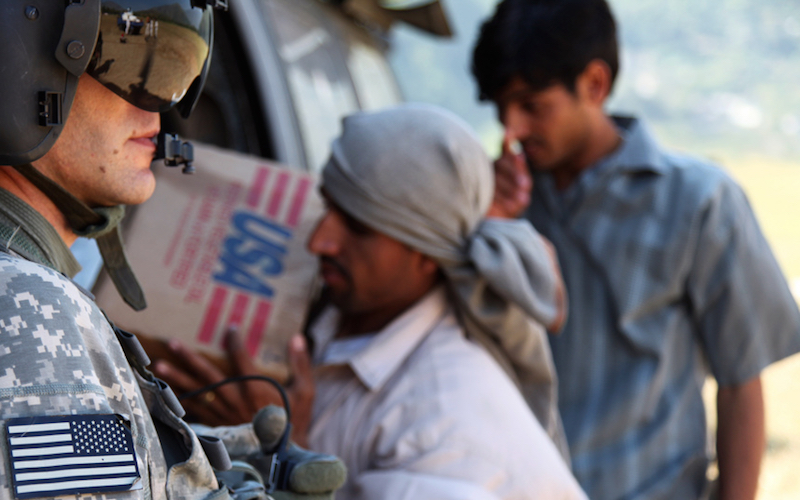
On U.S.-Pakistan Relations
Pakistan and the United States have recommenced the stalled talks known as the Strategic Dialogue after a three year hiatus. Secretary of State John Kerry welcomed Pakistani Advisor on Foreign Affairs Sirtaj Aziz to convene the multi-faceted dialogue which will build long-term cooperation in energy, strategic stability and nonproliferation, counterterrorism, economics and education.
The dialogue signals renewed interest in US-Pak relations. Secretary Kerry initiated the dialogue process by stating “Expanding and deepening our relationship has long been a personal commitment of mine. In the Senate, I was privileged to join with my colleague Dick Lugar and with Representative Howard Berman in sponsoring a law that was aimed at lasting cooperation between the U.S. and Pakistan – between businesses and universities and citizens in addition to our governments.” Historically, Pakistan and US relations are defined more appropriately by the term kinetic rather than bilateral. The US is largely perceived as a state that interacted with Pakistan merely to uphold its strategic interests in the region.
In the same vein, the Afghan problem remained a focal point on the agenda. Pakistan remains the key member in all quadrilateral, trilateral and bilateral discussions which took place to support an Afghan-led peace process.
However, Pakistan found it difficult to get the Haqqanis to the negotiating table which led to questions about its role in the process.
Despite the fact that the US recognized the extraordinary and real sacrifices of Pakistan’s military, especially in Operation Zarb-e-Azb and the ongoing missions in North Waziristan, the US remains skeptical of the Pakistan’s counter-terrorism strategy in the region and the attack on the Indian Air Force base in Pathankot negated all efforts related to Pakistan’s counter-terrorism measures. Although Secretary Kerry commended Pakistan’s commitment not to differentiate between terrorist groups in the implementation of this strategy, there still remains the demand that Pakistan must take concrete steps to show the world its commitment not to differentiate between terrorist groups.
For decades, the major reason for complicated relations between the two states has been disagreements over limits on Pakistan’s nuclear weapons. Although the United States has an appreciation of Pakistan’s nuclear security measures, there is frustration over Pakistan’s growing nuclear arsenal.
Pakistan has affirmed that it would not sign any deal that would limit its nuclear program and compromise its national interests when India and the US continue to strengthen their nuclear cooperation. These realities suggest that the prospects of a civilian nuclear deal and NSG membership on a criteria-based approach are doubtful. Pakistan has approved the inter-agency process to ratify the Convention on Physical Protection of Nuclear Material (Amended) and reiterated its determination to take measures to strengthen national security effectively so as to respond to the threats without entering into an arms race.
Pakistan has also participated in the IAEA nuclear safety action plan and has extended its cooperation in other areas with the IAEA to improve nuclear security. The persistent demands to limit Pakistan’s nuclear weapons ignores these efforts. However, the resumed dialogue process is important as it re-establishes a level of normal relations. If Pakistan improves relations with its neighbors and limits its nuclear program, the engagements stated by the US in the Dialogue could be successful. In addition, Washington will be looking to Islamabad to negotiate with the Taliban, which could provide some leverage for Pakistan.
The agenda of the bilateral dialogues has always been dominated by security concerns, whether about nuclear weapons or Afghanistan, but more is expected from the latest round because the energy sector is included. If the US continues to exercise its Asia pivot strategy without realizing deterrence theory in South Asia and Pakistan’s interests in the region, the recent Dialogue would prove to be another episode in the saga of continued talks and ineffectual outcomes. Just entitling the talks a ‘strategic’ dialogue will not transform the transactional relationship into a strategic relationship without mutual trust and interests.

